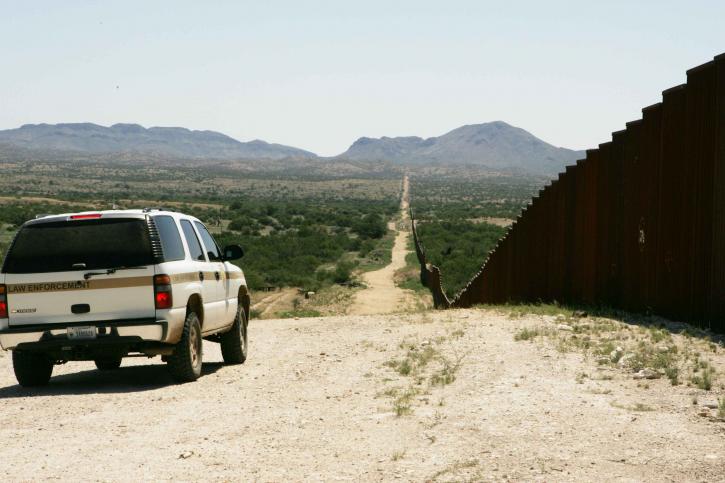The administration won’t let asylum-seekers into the U.S. if they didn’t ask for protection in other countries, too.
The Trump administration has moved to radically restructure the nation’s asylum system, with plans to instate a new regime critics have already blasted as ‘blatantly illegal.’
The new rule, writes The Los Angeles Times, was approved by U.S. Attorney General William Barr and Acting Homeland Security Secretary Kevin McAleenan last week. Published in the Federal Register Tuesday, the rule will take effect today.
The policy prohibits asylum-seekers from applying for protection in the United States if they didn’t request asylum in their first country of transit. In effect, the only people who’ll be eligible to have their asylum claims heard at the border are Mexicans, who make up a small percentage of applicants.
Instead of lodging petitions at the border, migrants will have to begin asylum proceedings in their home country. The only alternative, under the administration’s new rule, is requesting protection in the first nation an individuals enters en route to the U.S.
In a joint statement issued by the Departments of Homeland Security and Justice, representatives said the rules “add a new bar to eligibility for asylum” by restricting applications from migrants “who did not apply for protection for persecution or torture where it is available in at least one third country outside the alien’s country of citizenship, nationality or last lawful habitual residence.”
Only in rare cases would exceptions be permitted.

Barr framed the revision as a necessity—needed to combat rampant “exploitation” of the United States’ asylum system.
“This rule will decrease forum shopping by economic migrants and those who seek to exploit our asylum system to obtain entry to the United States, while ensuring that no one is removed from the United States who is more likely than not to be tortured or persecuted on account of a protected ground,” Barr said.
But Barr’s is a bizarre stipulation–especially for the Central American migrants responsible for the brunt of the United States’ asylum claims. While the United Nations does limit the rights of asylum-seekers who find refuge in a “safe third country,” The Guardian notes the elasticity of the term. Human rights advocates have said that neither Mexico nor any Central American country can be considered safe places wherein “the alien’s life or freedom would not be threatened.”
A Nicaraguan fleeing political instability might, for instance, be forced to ask for asylum in Honduras—a country at the epicenter of the region’s gang crisis, with some of the highest violent crime rates in the world.
And further north, in Mexico, migrants have long fallen prey to cartels that have expanded past narcotics smuggling to kidnapping, human trafficking and sex slavery.
The administration’s latest move has drawn condemnation from activists and international leaders alike. Filippo Grandi, the United Nations high commissioner for refugees, expressed concern for the policy’s likely effects.
“It will put vulnerable families at risk,” Grandi said. “It will undermine efforts by countries across the region to devise the coherent, collective responses that are needed. This measure is severe and is not the best way forward.”
The American Civil Liberties Union has also voiced its outrage and has vowed to take legal action against the new rule.
“The Trump administration is trying to unilaterally reverse or country’s legal and moral commitment to protect those fleeing danger,” said ACLU attorney Lee Gelernt. “This new rule is patently unlawful and we will sue swiftly.”
Sources
Most Migrants at Border With Mexico Would Be Denied Asylum Protections Under New Trump Rule
Trump moves to eliminate nearly all asylum claims at U.S. southern border
Trump’s ‘blatantly illegal’ immigration rules end asylum protections
US migrant crisis: Trump seeks to curb Central America asylum claims


Join the conversation!